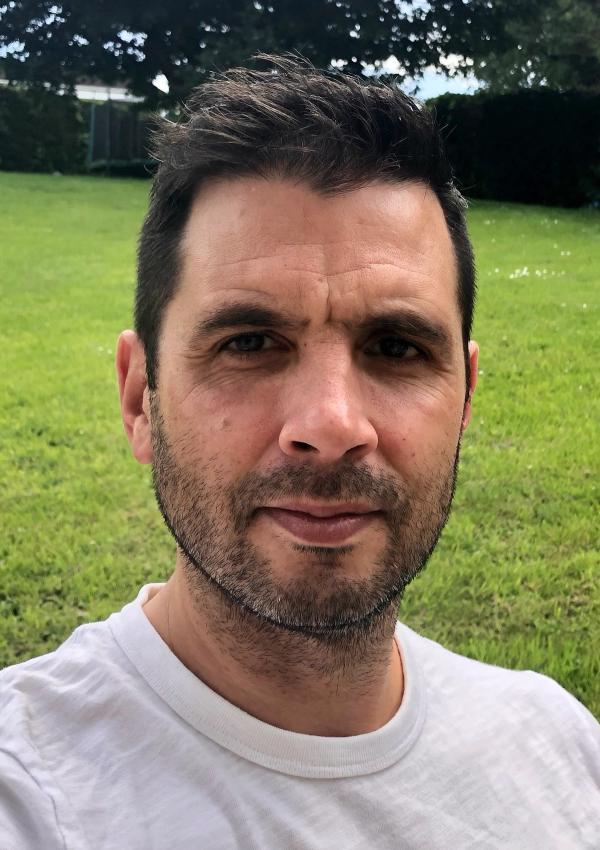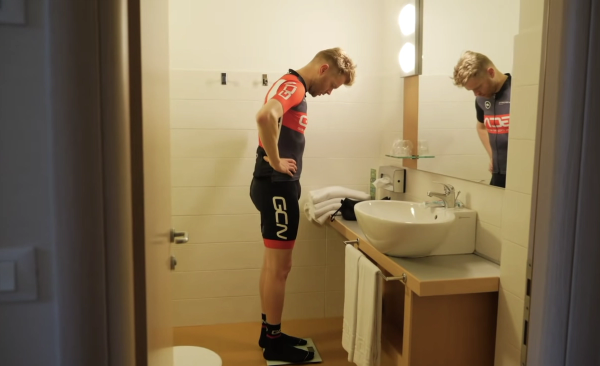The truth about counting calories and whether it can aid weight loss for cyclists
Ollie Bridgewood takes us through the science of calorie intake and when it is and isn’t useful when it comes to fuelling and weight management
Danny Walter
Head of Editorial Production
Increased fitness and improved mental health are just a couple of the many reasons people love to ride their bikes. Weight loss can also be pretty high up on the list too. But that doesn't just come down to the exercise you do on the bike, it's also influenced by the type and amount of food you eat.
A simple browse of your social media feeds will show you that there a plenty of health and fitness influencers out there who advocate calorie counting as a route to weight loss. Conversely, scientists tend to disagree with this theory. While it might seem straightforward that if you burn more calories than you consume then you’re bound to lose weight, in truth it's not really that simple.
In this video, Ollie Bridgewood explains why we should be cautious with that calculation and delves into the reasons why even though it's not beneficial to be obsessed with calorie counting, it can have its uses. Let’s start by looking at some basic science to help get us started.
What is a calorie and what are the problems with counting them?
A calorie is defined as the energy required to raise the temperature of 1cm cubed of water by 1 degree Celsius, by weighing and burning the food. The first problem here is that our bodies aren’t incinerators so we’re not extracting the same level of nutrients from that specific piece of food as the equation suggests. Also, people respond to different foods in different ways. Certain diets around the world are better at digesting and extracting nutrients from certain food types than others so we need to be careful with these general calculations and terms.
When trying to count calories it’s actually very hard to accurately measure the true amount of calories in the food you're consuming. By law, food labels only have to be 20% accurate, so in theory, a 100-calorie snack could actually be as much as 120 calories in reality, which makes keeping track of specific numbers very difficult.
Read more: The truth behind cycling and the science of weight loss
This effectively makes homemade or restaurant meals a complete guessing game when you consider portion sizes – the calories contained within a single meal can vary by over 50%, and even professional dieticians struggle with measuring intake in this way.
Then there's the amount of variation in the number of calories your body burns on a daily basis and this is dependent on a whole range of things like weight, height, sex etc. So while daily recommendations might be 2,500 calories for men and 2,000 for women, and even though some apps and calculators will account for those physical attributes, it’s still massively simplifying things. An 80kg Filippo Ganna will burn significantly more than a 58kg Jonas Vingegaard for example.
It's also important to remember that calories aren't really like for like across foods, even though the food industry might want you to believe that this is the case. For example, 1,000 calories of Mars Bars is listed the same as 1000 calories of raw broccoli. While the number might appear the same, there are striking differences between the two foods: Mars Bars have next to no beneficial micronutrients, they've had the fibre stripped out of them and contain loads of refined sugars and fat. The opposite is true for raw broccoli.
Read more: How long does it take to burn off a McDonald's Big Mac?
The general point here is that caloric values aren't as straightforward as they appear, which is why counting them is a complete waste of time. Or is it?
Is calorie counting a useful tool, or a waste of time?
Let's think about it in terms of pro cycling for a moment. A team like Visma-Lease a Bike, one of the most successful cycling teams in the world, has riders who are as lean as they can possibly be which is partly down to counting the calories they take onboard, to improve body composition. The team employs a more sophisticated method that relies on machine learning to predict caloric demands of riders for certain races, but it does show that measuring energy in versus energy out can be a useful tool when applied in the right way.
The other reason why calorie counting can be useful is because it effectively helps you to keep a food diary of what you eat day by day, meal by meal. This is good for tracking what types of food you're eating but also the volume, and potentially holds you more accountable of your intake. It can also be useful in making sure you properly fuel for training sessions and get sufficient proteins to recover.
If you find you’re limiting your ultra-processed food intake and you’re exercising lots but you’re still putting on fat then you should consider making a note of what you’re actually eating and the quantities you’re consuming. That's calorie counting effectively, although we prefer to just call it keeping a food diary.
Read more: Why you may be struggling to lose weight form cycling
Efficacy versus effectiveness
There’s a big thing in science called efficacy versus effectiveness. Efficacy essentially means how well something works in ideal conditions, like a lab for example. Whereas effectiveness is how well it works in non-ideal conditions, i.e. 'the real world'.
What's important to consider here is that you could adopt a strict, healthy diet for a while and see the benefits. But the likely outcome is you will eventually become bored and overcompensate with the less nutritional value foods. In other words, it's not generally sustainable to approach dieting in this way. Instead, you should allow yourself treats here and there and enjoy your food. You’re more likely to be successful at weight management with a balanced diet if you adopt this approach.
So in conclusion, calorie counting can be useful in that it makes you more mindful of how much you’re consuming and how to balance your intake better, rather than being a strict way to approach the food you eat, because it's only so accurate. The trick is to live your life, make sustainable changes and be consistent.
For more videos on health and fitness check out our Lifestyle section on the GCN website and let us know what else you’d like Ollie to explain in the comments section below this article.












